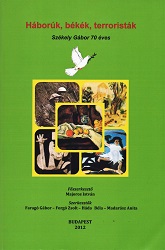
We kindly inform you that, as long as the subject affiliation of our 300.000+ articles is in progress, you might get unsufficient or no results on your third level or second level search. In this case, please broaden your search criteria.

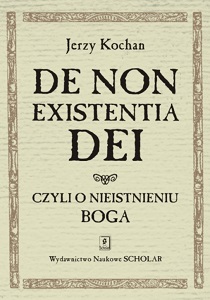
Na bohaterów książki wybrałem Kazimierza Łyszczyńskiego, Jana Mesliera, Giulia Cesare Vaniniego, Paula Holbacha, markiza de Sade’a, Immanuela Kanta, Johanna Gottlieba Fichtego, Ludwiga Feuerbacha, Fryderyka Engelsa, Karola Marksa, Zygmunta Freuda, a także Richarda Dawkinsa, Michela Onfraya i Michaela Schmidta-Salomona. Nie przez przypadek analizuję poglądy tych właśnie postaci. Książka nie jest przy tym kompletnym przeglądem ważnych myślicieli ateistycznych. Sądzę jednak, że życzliwy czytelnik doskonale zrozumie, dlaczego te osoby stały się bohaterami moich esejów i dlaczego uznałem je za niezwykłe, a także po prostu piękne i wspaniałe. Moje dociekania mają charakter teoretyczno-historyczny. Nie brak tu więc analiz, krytyk i rozważań. Chciałem, aby unicestwiana przez wieki ateistyczna tradycja jak najgłębiej przemówiła do współczesnego czytelnika, rozkochała go wręcz w sobie, i by znalazł on w niej także możliwe źródło współczesnych odpowiedzi na aktualne pytania.
More...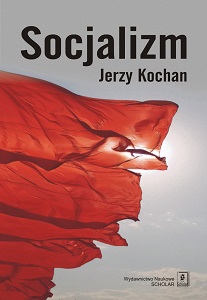
Zdewastowana przestrzeń publiczna i miotająca się w niej – od chorobliwego neoliberalizmu do nacjonalistyczno-katolickich wizji represywnego państwa wyznaniowego – świadomość obywatelska oddziałują niszcząco na racjonalną komunikację społeczną i kreują swoisty magiczny realizm walki politycznej – nieczytelnej i paradoksalnej. Taki stan rzeczy jest szczególnie niebezpieczny dla lewej strony sceny politycznej. Prowadzi wręcz do jej nieobecności i przechwytywania treści politycznych tradycyjnie związanych z lewicą, przez skrajną prawicę. W tym też sensie odbudowa tradycyjnej, klasowo zorientowanej polityki lewicowej, mającej swoje piękne karty w historii Polski, leży nie tylko w interesie polskiej lewicy. Powinna nią być zainteresowana każda demokratycznie i realistycznie myśląca siła polityczna, zdająca sobie sprawę z tego, że zagrożenie faszyzującą skrajną prawicą nie skończyło się w historii Europy wraz z upadkiem Hitlera.Książka, którą przedstawiam, jest próbą zakreślenia pewnych fundamentalnych zasad teoretycznych rozumienia historii i okresu przejściowego od kapitalizmu do socjalizmu. Zawiera systematyczny wykład tych zagadnień z pozycji materializmu historycznego i w ramach szeroko rozumianej tradycji, odwołującej się do Kapitału Karola Marksa i Manifestu komunistycznego. W tym też znaczeniu jest próbą przybliżenia współczesnemu czytelnikowi tej tradycji, a jednocześnie realizacją zadania jej aktualizacji, a nawet eksperymentalnego, i czasem ryzykownego, wykorzystania do analizy różnych zagadnień postmodernistycznej rzeczywistości, swoistego matriksa dwudziestego pierwszego wieku.
More...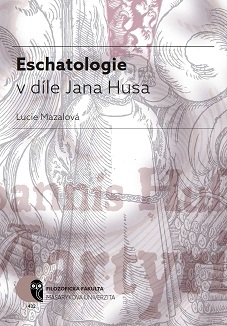
"The book presents Hus’s views on the last things in the way the indivisible whole of his work and life teaches us. It draws on a content, linguistic, and literary-historical analysis of Hus’s selected works, especially his Latin sermons and his correspondence. Moreover, it takes into account his other works as well as the production of other relevant authors, especially Milíč of Kroměříž, Matěj of Janov, and John Wycliffe. It thus presents Hus’s eschatology in a wider context of church reformation."
More...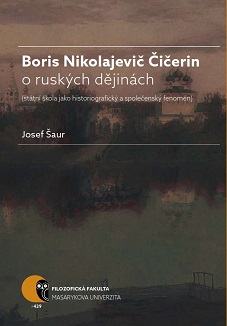
The aim of the book is to clarify one of the fundamental chapters of Russian historiography history. It puts forward analysis of the Russian history concept of Boris N. Chicherin (1858–1904) within the Russian historiography context of that time and within the context of Chicherin’s works on politics and philosophy. The paper shows the beginnings and circumstances of the so called state school of Russian historiography, the representatives of which were apart from Chicherin other reputable representatives of Russian historical thinking – K. D. Kavelin, S. M. Solov’ev and T. N. Granovskii. Using the relevant sources the individual aspects of their Russian history concepts are examined as well as the reaction to their work at that time. The book also shows the connections between the Russian history concept of Chicherin and Russian liberalism of the 19th century.
More...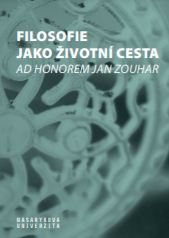
The text introduces Jan Zouhar as an important representative of contemporary Czech philosophy. It is an attempt to cover the breadth of his philosophical thinking, which extends from the historiography of Czech philosophy to some remarkable overlaps. For instance, we can mention the position of philosophy in the context of our spiritual culture, the place and role of tradition at present, and a reflection on the role that philosophy plays in human life.
More...
Unlike Martin Heidegger, who was always critical of Plato’s role in the history of philosophy, and Jan Patočka, who was more charitable but still had serious misgivings about Plato, Edmund Husserl saw Plato truly positively. However, his view resulted from the fact that he had simplified Plato’s theory substantially and adapted it to his own view of philosophy. According to Husserl, Plato was an inspirational figure as a founder of philosophical ‘theory of science’, and because he sought abstract knowledge of the Forms, he could serve as a useful contrast to the one-sided philosophy of modern empiricism. This paper attempts to present Husserl’s position in a greater detail and assess it.
More...
The Study Prometheus, for example loosely follows up the central theme of Hans Blumenberg’s theory of myth and mythology, the character of Prometheus and Promethean conceptions in scientific as well as imaginative literature (poetry and drama). The aim is not an elaborate reflection of all the variations on Promethean themes that were summarized in Blumenberg’s epochal book Work on Myth (1979). The author rather selects some themes from the works on the myth about Prometheus in Classical Greek literature (Hesiod, Aeschylus) and, at the turn of modernism, in German movement Sturm und Drang (Goethe). Most attention is paid to a fictional figure known as actio per distans (action at distance, with keeping a distance) and its variations from the distance between people and gods through the distance between people to the distance of an ageing poet from spirit of the age (Zeitgeist), to which he no longer belongs.
More...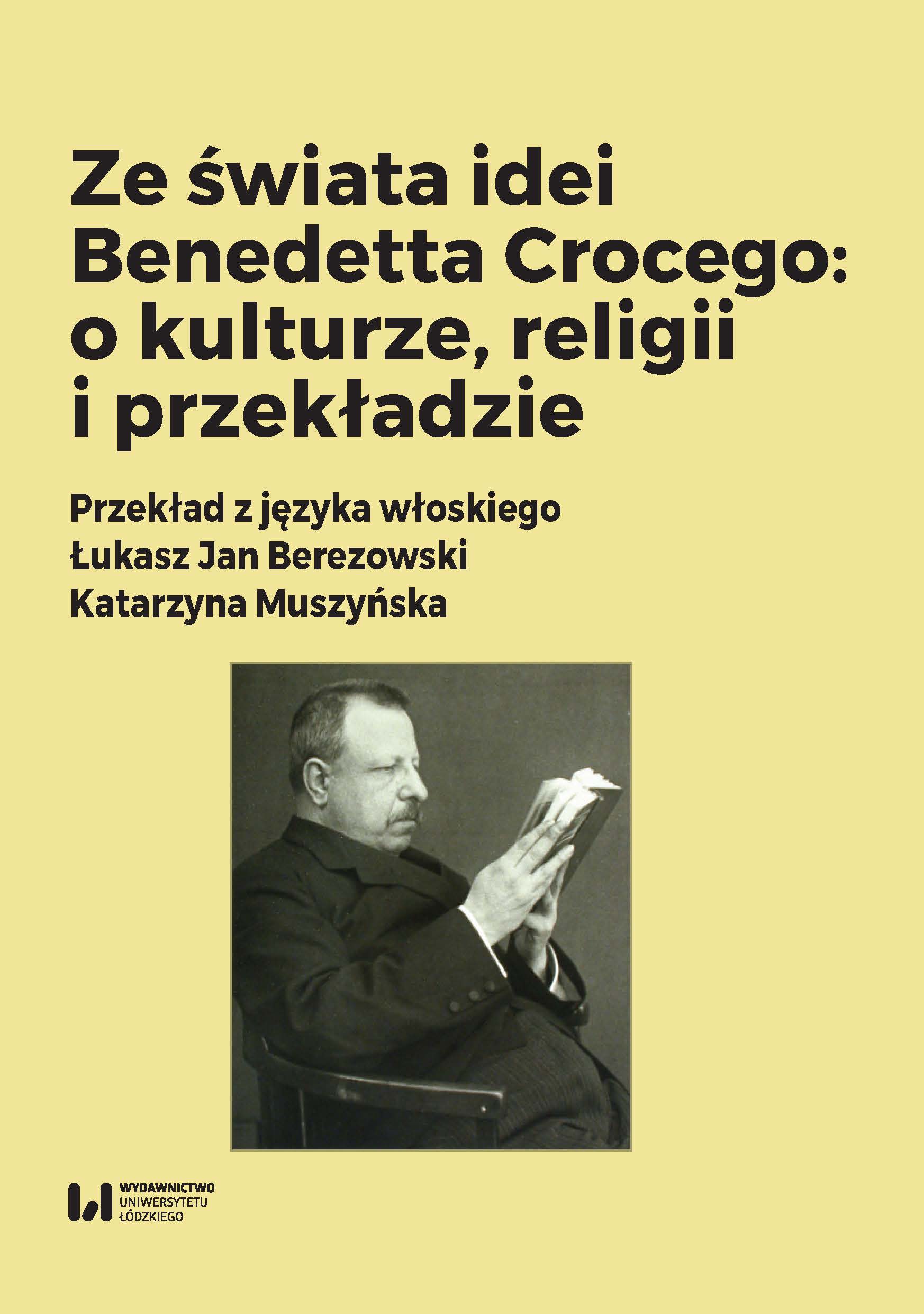
The original versions were primarily issued in "La Critica. Rivista di Letteratura, Storia e Filosofia", a journal edited by Benedetto Croce in the years 1903-1944. The presented work is accompanied by a historical and philological commentary of the editor as well as a list of printed references related to Croce (both source texts and critical editions available for Polish language).
More...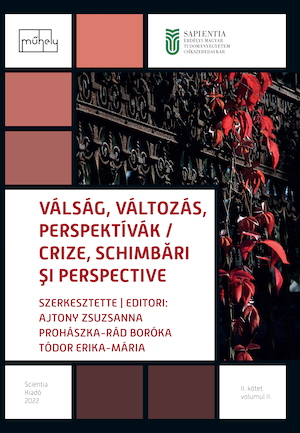
For Bergson, humour is a social phenomenon, and it needs artistic media to work well. Humour has a specific logic pointing beyond rationality. An epistemological investigation of laughter is theoretically required because the human ability of laughing – according to Bergson – is not a mere evolutionary reaction but a philosophical-psychological instinct, namely the ability for intuition of life. Within the confines of comedy, Bergson distinguishes several types of humour. He intends to emphasize that comedy stands on the boundary between life and art, and thus it trends to the universal. The philosophical relevance of humour reveals itself in being conducive to learning the technique of paying attention to life. The artist feels this human aim: the desire to contemplate ourselves free from external interests. Bergson calls this contemplation intuition. With this ability, one can turn to one’s own self. According to Bergson, this willingness proves the aesthetical ability of mankind, which has a subtle aim: to search for ourselves beyond our sense. In my paper, I would like to present the main elements of Bergson’s theory of laughter. Furthermore, I would like to emphasize that Bergson’s centenarian theory is still relevant.
More...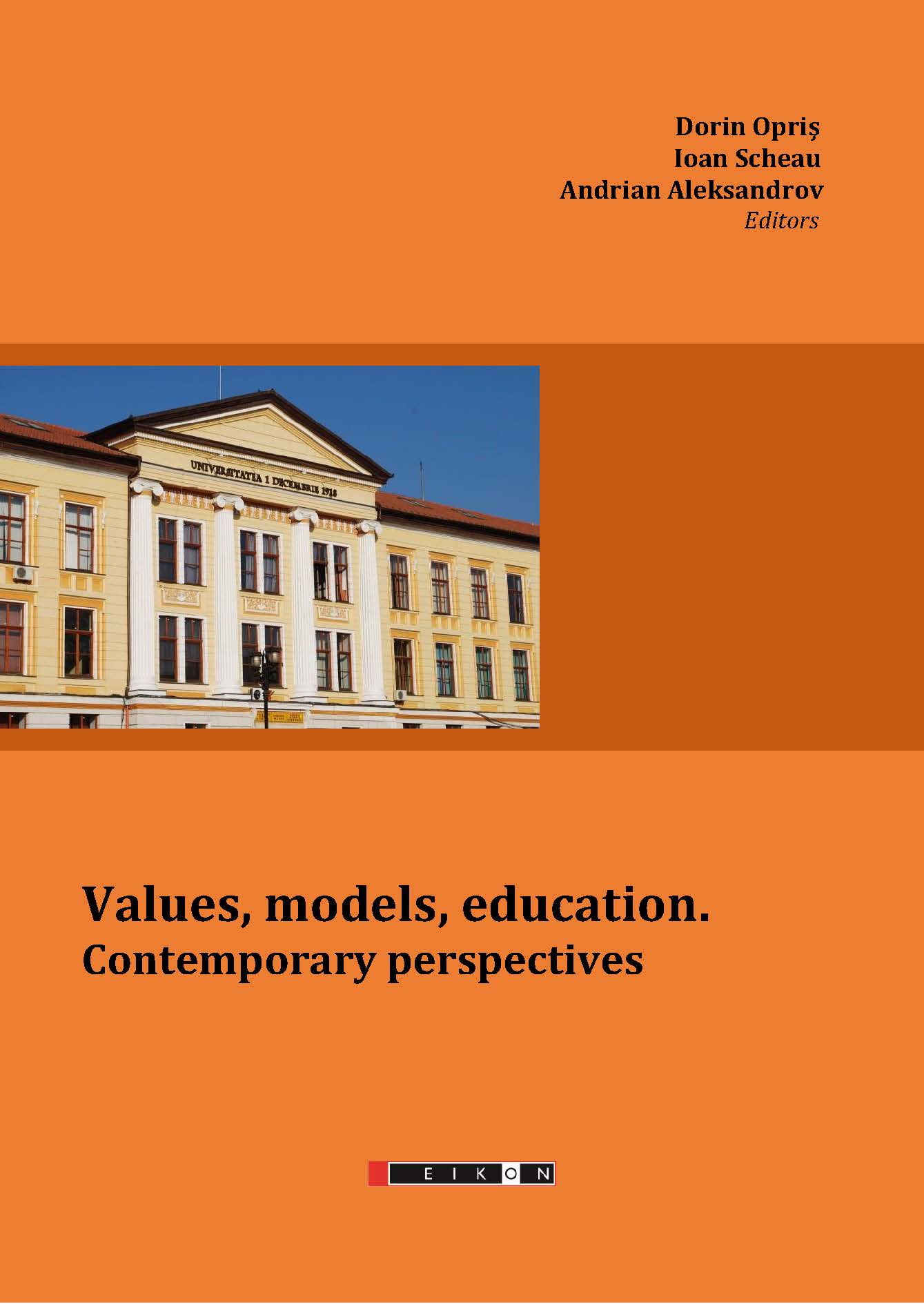
Life and death are fundamental antinomian concepts of human existence. Life as a process of becoming gives us the chance to realize ourselves personally and professionally. Man's attitude towards the value of life, in different historical periods, was different: for the ancient man, life is a complex process, which sums up contemplative and moral aspects, which would help him delimit truth from falsehood, value from non-value, etc.; for the medieval man, the moral life is in close correlation with the observance of church canons, intelligence being defined as the main instrument of morality; for the modern man, life holds supreme value; the postmodern man is confused and uncertain, discussing contradictory issues related to the meaning and value of life in the context of multiple overlapping crises (spiritual, moral, political, etc.). The issue of the value of human life becomes an object of study of bioethics starting from the second half of the XX century. Bioethics has always been focused on ethical-moral norms and values, human life representing the supreme moral value.
More...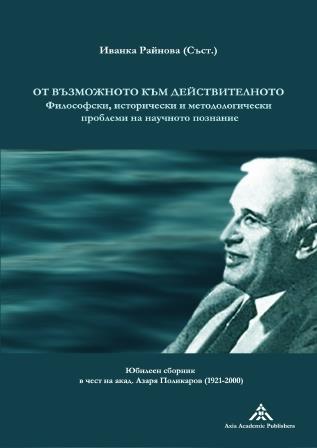
The main thesis of the author is that religion and science are the existential needs of the human spirit. But many see a contradiction between both. Where does it come from, and how can the original unity be restored? From the position of Hegel (Encyclopedia §1): “Philosophy and religion have as their subject the truth, and it is the truth in the highest sense of the word that God and He alone is truth." Further, both deal with the realm of the finite, nature and the human spirit, and their relationship to each other and to God as their truth. Science and religion have different fields of application, but they sort of illuminate the same objective reality from different points of view. Thus, they complement each other, they are not contradictory in themselves, but only in the scattered mind of the pragmatist, atheist thinkers, or the ignorance of the naive realist. And since man is created ontologically unified, he must find truth, peace and faith in the unity of his Self, which will lead him along the Path of Truth and Life. Religion and science can relate to each other as religious and secular, church and state, soul and body. The questions of creation and evolution are much more complex, and here are at least ten basic concepts between creationism and the materialist realism. More important is not whether there are developments and degrees of perfection in the world, but the question is: How has been constructed their determination and what are the causal links and interactions? All these problems are unsolvable without mastering and using the dialectical logic that began with Plato, but was created by Hegel and successfully interpreted and applied by Whitehead.
More...
Can scientific knowledge help us to save humanity? In her article, Batuleva shows that for Radoslav Tsanoff scientific knowledge is an undeniable value, an unconditional good, and yet we cannot fully trust it without a preliminary clarification of the question of how knowledge relates to other values, what is its effect on individual human experience on the one hand, and on the social existence on the other. Batuleva displays how Tsanoff's theory of values serves as a foundation and a link between the ethical, scientific and socio-political discourses. The original optics he has chosen, aims to inscribe moral imperatives in scientific, economic and political relations. This leads him to build a new scale of values, because without a "vital moral principle", any economic or political reform would lose its positive charge.
More...
Right from its beginning in 1660 the Royal Society of London embarked on a program of research in natural history. It inevitably included the Ottoman empire and was mostly organized by the first secretary of the Society, Henry Oldenburg, who took care of the business in those first formative years of the scientific academy. His correspondents were able to provide information from various parts of the Empire, but also from neighboring countries and regions. In this process a special role played the so-called questionnaires for natural history, which were designed by the Society’s Fellows and shaped not simply the research but also the correspondence itself.
More...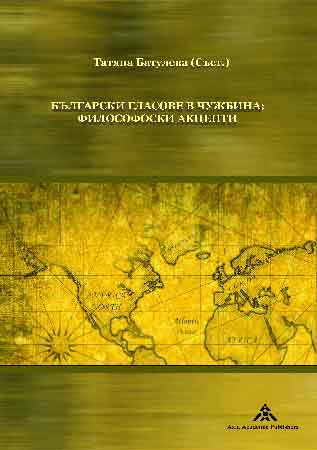
The work is centered around the views of Dr. Petar Beron – an "emblematic" person for the so called "Bulgarian Revival". He is the first Bulgarian encyclopedist and author of the first Bulgarian textbook for modern, secular education. Beron spent most of his life in Heidelberg, Munich, Paris, Berlin, London, Athens and Vienna. The text analyses his original system for explaining the world, set out in his greatest work, published in 8 volumes under the general title "Panepistemia". In this case, the object of analysis are the philosophical views of Beron, presented in the work "Slavic Philosophy", published in 1855 in German in Prague. His name is an emblem and a metaphor of the national culture and Bulgarian identity of this period.
More...
The article is devoted to the intense literary and public activities of the Bulgarian philosopher Yanko Yanev in Germany from the mid-1930s and until his death in 1944. Yanev was educated in Germany and defended a doctoral thesis under the supervision of Heinrich Rickert. He is the author of numerous important studies on Nietzsche, Hegel, Goethe, Hölderlin, Novalis, Schopenhauer, etc. The article is focused on Yanev’s metaphysi-cal inquiries, which brought him to perceive a kinship between the Balkans and Germany. The author discusses Yanev’s rejection of the claims regarding the Slavic nature of Balkan people, claims he considered a Russian insinuation. Also commented on is his view that the Balkans is a construct, in the creation of which this Bulgarian thinker invested his romantic attitudes and imagination.
More...
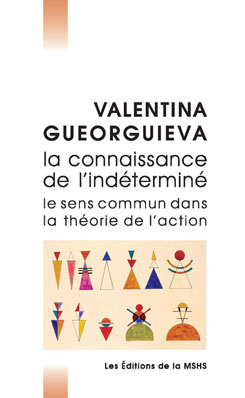
The mode of thinking that we call common sense contains a fundamental paradox, namely how personal sensations - so personal that they are almost incommunicable - form the vision of an intersubjective mode that we share with others, but also the feeling of belonging and participation in the world which characterizes action. We will not be wrong to define common sense as the faculty of knowing, following Descartes, if we only specify that it is a way of broadening one's thinking and opening oneself to plurality. We will not be wrong to define common sense as a virtue, following Aristotle in his reflections on phronesis, if we specify that it is not a formal requirement or a Kantian imperative. It would be wrong to make it a capacity to act, formed in the spirit of a community of judgment by the expanded mentality, following Arendt. The quest for common sense starts from a historical reconstruction, passes through the critical examination of recent interpretations on the Kantian sensus communis and on Aristotelian phronesis, which follows by research on ordinary knowledge in phenomenological sociology, in ethnomethodology and analytical philosophy, to arrive at the definition of common sense as the capacity to know the indeterminate.
More...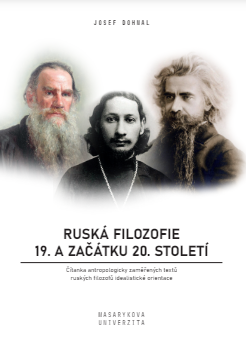
The textbook contains medallions of nine selected Russian philosophers of the 19th and early 20th century – P. Ya. Chaadaev, N. A. Berdyaev, S. N. Bulgakov, N. F. Fyodorov, P. A. Florensky, S. L. Fank, K. N. Leontyev, V. S. Solovyov and L. N. Tolstoy. In the next section, the texts of these philosophers are presented in the original Russian so that readers can become familiar with the basic underpinnings of their philosophical concepts. The textbook is intended for students of Russian studies, philosophy and humanities in general at the faculties of philosophy and education in the Czech and Slovak Republics, as well as for a wider circle of those interested in Russian idealist philosophy.
More...
Philosophy and Religious Studies, one of the three main departments within the Islamic Sciences and Theology faculties, investigates the phenomenon of religion through the lens of humanities disciplines such as history, sociology, logic, psychology, philosophy, and education. Situated at the intersection of theology and the humanities, the Department of Philosophy and Religious Studies plays a significant role in the internationalization of theology education. Concurrently, these disciplines serve as intermediaries in contextualizing Islamic Sciences within contemporary understanding. The Department of Philosophy and Religious Studies generates data on contentious contemporary issues such as artificial intelligence, transhumanism, migration, and conflict resolution, thereby elucidating the intellectual background of these issues and providing theoretical insights through empirical research. Within this framework, the study addresses the incorporation of courses offered by the Department of Philosophy and Religious Studies, presenting them aligned with the project's objectives. The study aims to introduce the Department of Philosophy and Religious Studies, elucidating its content, functions, and outcomes, to foster critical thinking and analytical skills among students through philosophical education, facilitating a deeper comprehension of diverse aspects of religion, and delineating the disparities and connections between philosophy of religion and religious sciences. Furthermore, the study seeks to enable students to assess the logical and philosophical dimensions of various religions and belief systems, while also contributing to theological education by highlighting the unique fields of study and values inherent in Philosophy and Religious Studies. Ultimately, the study endeavors to facilitate the international integration of the Department of Philosophy and Religious Studies and its adaptation to contemporary needs within theological education. The research is predicated on the premise that Philosophy and Religious Studies should to be more inadequately introduced to students, particularly at the secondary school level, despite their increasing relevance in light of evolving global agendas. As a result of the analyses conducted, insights have been gleaned regarding the content, functioning, outcomes, fields of study, and methodologies of departmental courses. Consequently, this book aims to introduce the field of Philosophy and Religious Studies to students from high school to graduate levels, guiding new researchers, and offering ideas and direction to advisors and students regarding potential areas of study. Covering a broad research area alongside its departments, this book will guide prospective theology students, current departmental students, and those seeking graduate education within this discipline. In alignment with the stated objectives, the study will conclude by compiling chapters contributed by lecturers from diverse disciplines. Employing a quantitative research method and documentation technique, the study has gathered data from articles, books, field research, and lecturers’ experiencies. Detailed accounts of sub-units of Philosophy and Religious Studies, such as the History of Religions, Sociology of Religion, Psychology of Religion, Philosophy of Religion, Religious Education, Islamic Philosophy, Logic, and History of Philosophy, are provided, covering aspects such as history, methodologies, research topics, notable figures, fundamental resources, graduate education, academic journals, interdepartmental relations, and international collaborations. Each completed chapter has been peer-reviewed by relevant department lecturers using blind refereeing principles, with necessary corrections implemented by the authors. The book encompasses eight departments, delving beyond superficial analysis to address foundational issues within each department. Additionally, each chapter includes recommended readings and films. This study asserts itself as a potential textbook for introducing Philosophy and Religious Studies as an elective course in Imam Hatip high schools. It can also serve as an elective textbook for first-year undergraduate programs.
More...